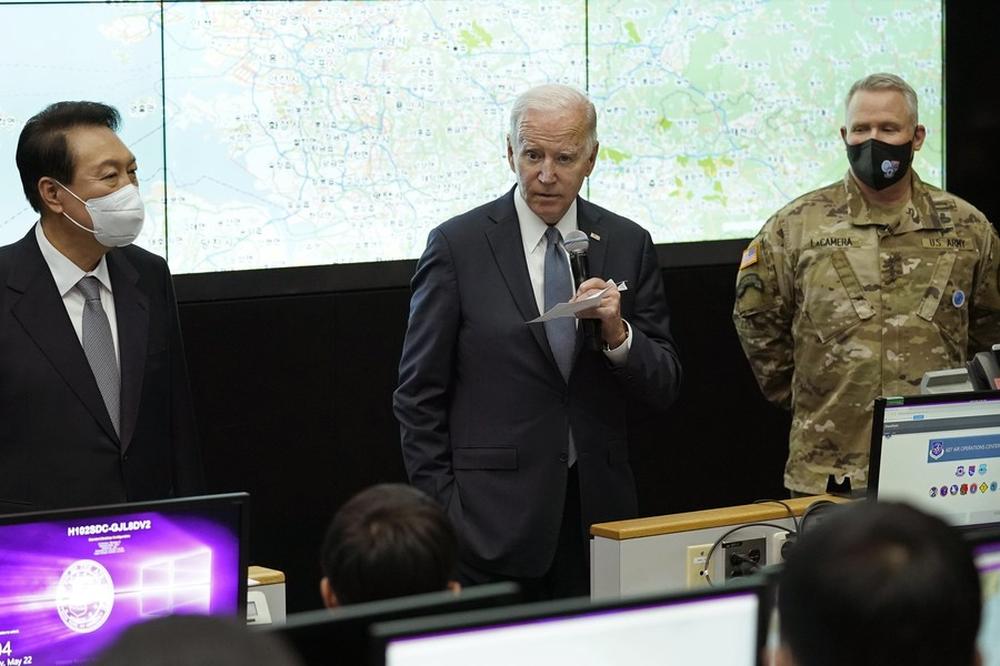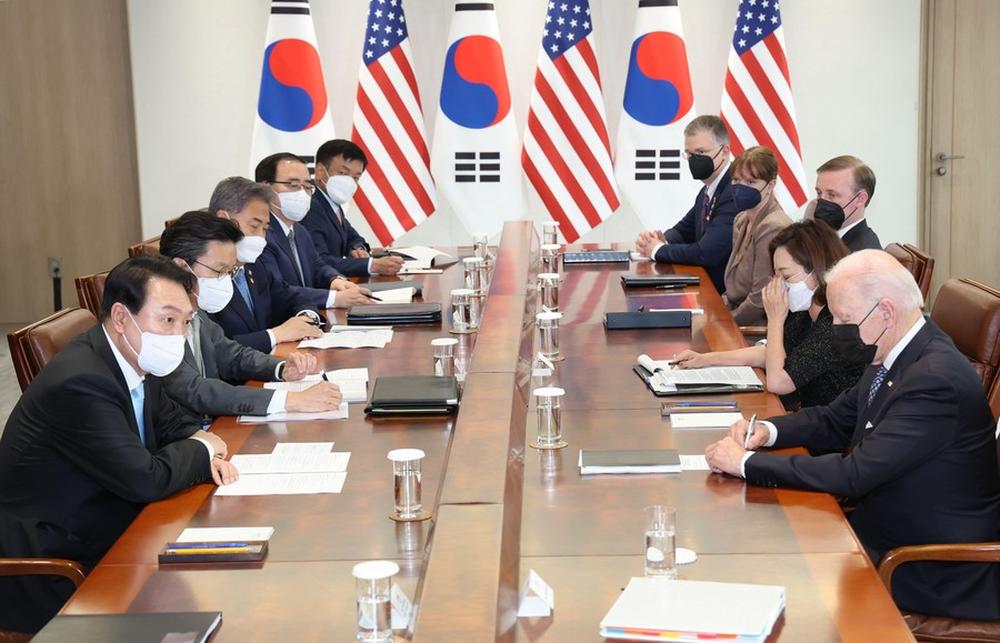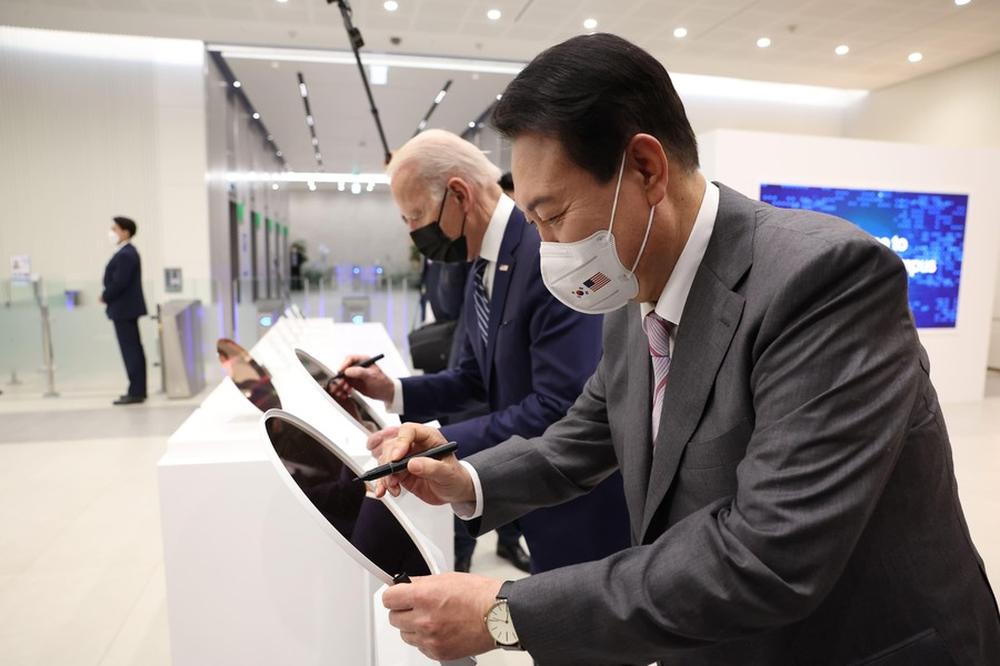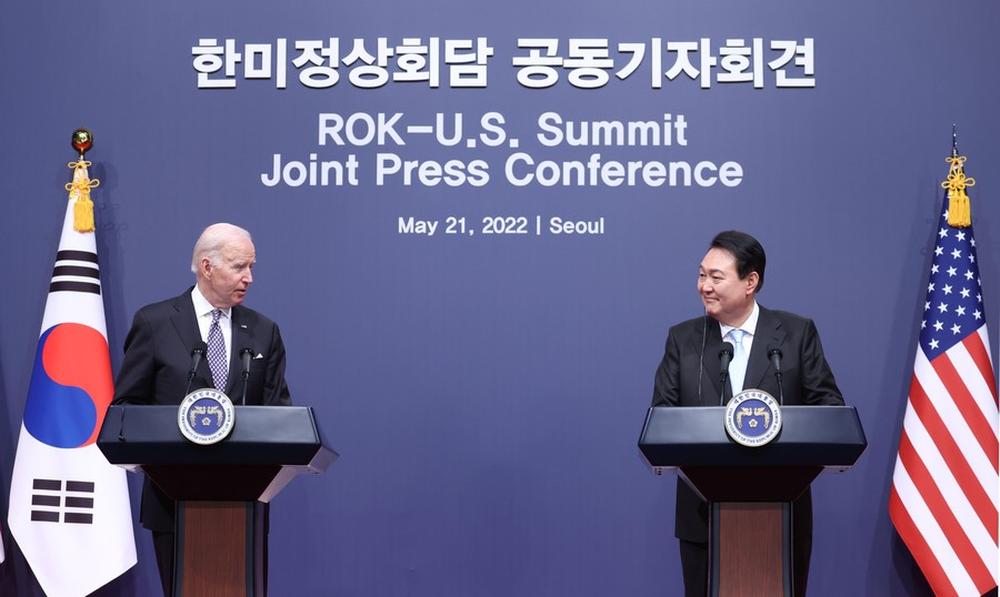- #China
- #Economy & Trade
- #Global Issues
- #US Foreign Policy
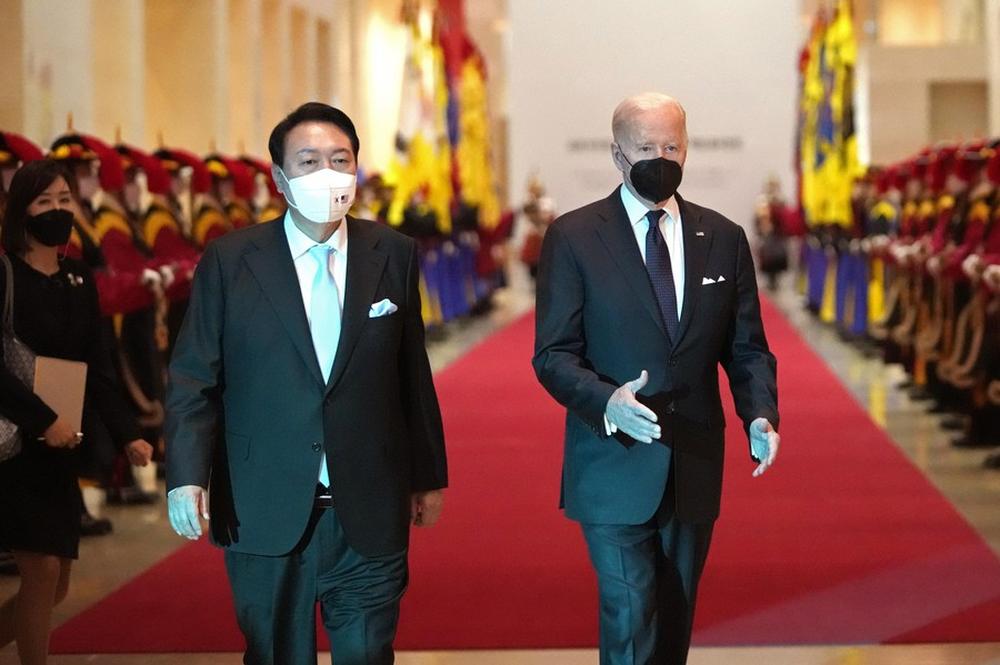
► Even though President Yoon and President Biden, in their joint statement after their first summit on May 21, 2022, reaffirmed that the KORUS FTA remains the foundation of the economic relationship between the two countries, the landscape surrounding the ROK and the U.S. seems to have dramatically changed.
► A new chapter for the ROK-US economic relationship has just begun, and we expect it will be a good model for a true partnership in the Indo-Pacific region.
This year is the 10th anniversary of the Korea-U.S. Free Trade Agreement. In Korea, there is a saying that “even rivers and mountains change in 10 years”. Even though President Yoon and President Biden, in their joint statement after their first summit on May 21, 2022, reaffirmed that the KORUS FTA remains the foundation of the economic relationship between the two countries, the landscape surrounding the ROK and the U.S. seems to have dramatically changed.
The first and foremost change during the past ten years is the deepening and widening rivalry between the U.S. and China. Not only Korea but also many countries whose economies heavily depend on China are stuck in the middle between the two superpowers. Businesses that operate both in China and the U.S. and trade between the two are also suffering from retaliatory measures on both sides including high tariffs and export controls. Moreover, China applied coercive economic pressure and trade measures on countries which criticized China or supported Taiwan. Thus, “de-coupling” from China became a buzzword and a reality in the business world; however, it has shown that China’s involvement in the global supply chain and its attractiveness as a market cannot be easily disregarded. Under these circumstances, Korea, which severely experienced China’s economic pressure over the THAAD deployment, will continue to confront challenges. How President Yoon and his new administration will go beyond the strategic ambiguity of the previous administration will receive much attention.
Second, as the unprecedented COVID 19 pandemic for more than two years has revealed how vulnerable and fragile the global supply chain can be, the importance of economic efficiency was overshadowed by the emphasis on national and economic security. Moreover, due to Russia’s invasion of Ukraine early this year, geo-economic issues pervaded the global supply chain, and economic security became another buzzword. The supply chain ecosystem has been naturally formed by global business activities over decades, but it is now being managed by governments for the cause of economic security in many countries.
The third change is related to the economic relationship between the ROK and the U.S. Since the KORUS FTA entered into force in 2012, the bilateral trade and investment between the countries have not only quantitatively expanded but also qualitatively deepened. The amount of their bilateral trade in goods and services was 145.8 billion dollars in 2011 and increased to 174.8 billion dollars in 2020. Korea’s annual investment in the U.S., in particular, exceeded 10 billion dollars in 2015 and reached to more than 20 billion dollars in 2021 despite the COVID 19 situation. The fields of its investment extensively cover semiconductors, batteries, automobiles, electronic goods, large transformers, biotechnology, steel and chemicals. Almost all major Korean companies in various areas operate in the U.S., and some of them have a plan to make an additional investment in the future. They have made a great contribution to the US economy by creating jobs and, more importantly, playing a vital role in the context of the supply chain for US industries.
Based on the rule-based bilateral economic relationship over 10 years and the new landscape surrounding the two countries, we can expect that the first summit between President Yoon and President Biden will open a new chapter for the real ROK-US economic partnership. In this regard, the joint statement addresses “a strategic economic and technology partnership” and it is noticeable that the two Presidents agree to launch an economic security dialogue between their respective National Security Councils. When it comes to the supply chain, they also agreed to establish a regular ministerial-level Supply Chain and Commercial Dialogue for discussion on resilient supply chains of key products, including semiconductors, batteries, and critical minerals. Additionally, both leaders agreed to enhance cooperation between the foreign investment screening and export control authorities related to critical technologies. Given the fact that the U.S. has expertise in this regard, it would be a great momentum for Korea to advance its systems and regulations for its own economic security. Those issues are what governments cannot address through trade agreements. Such initiatives also demonstrate that the U.S. recognizes the strategic and economic importance of the ROK as a reliable ally for a more secure and resilient supply chain in the Asia-Pacific region.
Against this backdrop, it is encouraging that President Yoon welcomed the U.S. Indo-Pacific Strategy and the two Presidents agreed to cooperate through the Indo-Pacific Economic Framework (IPEF) and develop a comprehensive IPEF which will cover the digital economy, resilient supply chains, clean energy, and other priorities for promotion of sustainable economic growth. Even though the IPEF for Prosperity was finally launched while President Biden visited Tokyo, it is also true that its substance is still in the cloud and many experts and businesses inside and outside of the U.S. are very skeptical about what the IPEF will be like at the end of the day. Nevertheless, there is no doubt that Korea’s joining the IPEF will strengthen the bilateral relationship between the ROK and the U.S. and, at the same time, be a great opportunity for Korea to go beyond the Korean Peninsula and play a leading role in the Indo-Pacific region.
Other noticeable areas of cooperation that the two President emphasized in the statement are energy security and commitment to fight climate change. In contrast to the previous administration, President Yoon explicitly agreed to collaborate on nuclear energy with President Biden. Given the reality that carbon neutrality would not be achievable without depending on clean energy, nuclear energy collaboration between the two countries would contribute to their respective energy security and sustainable development.
When it entered into force in 2012, the U.S. expected that the KORUS FTA, as the first U.S. FTA with a North Asian partner, could be a model for trade agreements for the rest of the region and underscore the US engagement in the Asia-Pacific region. The original expectation seemed to be met until the Trump administration withdrew from the TPP, but the KORUS FTA was suddenly blamed for the US trade deficit against ROK and, thus, renegotiated in 2018. On top of that, Korean industries became victims of almost all the US economic and trade measures on imports and exports, including Section 232 on steel products, trade remedies and export controls. They are definitely not what we expect from our true partners.
In this vein, the first Yoon-Biden summit opened the door to a new and more reliable economic partnership between the ROK and the U.S. for their prosperity, shared security and collective interests. The two Presidents pledged to make common efforts to address 21st century challenges by deepening and broadening cooperation on critical and emerging technologies and agreed to establish high-level official channels for economic security and supply chain. For the summit to bear juicy fruits, such new mechanisms should substantially function in a sustainable way. A new chapter for the ROK-US economic relationship has just begun, and we expect it will be a good model for a true partnership in the Indo-Pacific region.
Dr. Hyun-jung Je is Chief Representative of KITA Washington Center in Korea International Trade Association. She is now in charge of advising and supporting Korean trade companies which are involved in trade issues in the U.S. and also connects and plays a bridging role between Korean businesses and the US governments, congress and think tanks. She worked as a researcher at the Institute for International Trade (IIT), a branch of the KITA, focusing on Korea’s trade and its free trade agreements. She also served as a private advisor for trade negotiations in the Ministry of Foreign Affairs and Trade from 2016 to 2018, during which Korea concluded a free trade agreement with the U.S. She was also involved in the negotiations on goods of the Korea-Canada and the Korea-India FTAs. Hyun-jung Je holds Ph.D. in International Studies (major in international commerce) and M.A. in International Relations from Graduate School of International Studies (GSIS), Seoul National University.


